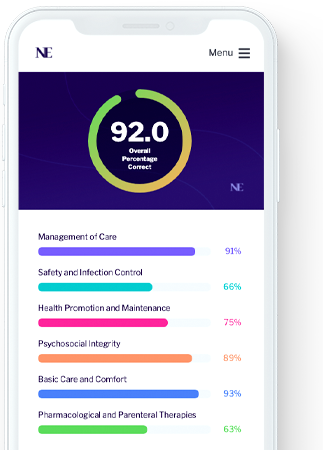11 Ways to Make Nursing Clinical Rotations Awesome
Didactic learning that occurs in the classroom is vital to understanding pathophysiology, pharmacology, and nursing interventions. Truly learning how to be a nurse, however, occurs during clinicals. In the midst of an instructor corralling a gaggle of confused nursing students, your time with a preceptor provides endless opportunities for learning, increasing your perspective, and impacting your future career. Do these eleven things to ensure your clinical experiences will be by far the best thing about nursing school.
1. Be bold
As a nursing student, you don’t have much to lose, but you have a lot to gain. Be bold! Try to set up a meeting with the nurse manager to discuss job openings. Inquire if you can shadow a certified nursing specialist or nursing education specialist. Meet with your preceptor to ask questions or get their help with the job search. To really succeed with any of the following suggestions, you need to be bold. Boldness is the key to making the most of clinicals.
2. Have the right perspective
The tendency of most nursing students is to go out on the unit and show how much they know. They want to validate themselves or impress the staff or their fellow students. Students can get so focused on showing off what little they know that they don’t recognize all the things they can learn. If you really want to impress the staff, ask questions and start to verbalize understanding of what you’re learning. Due to the complexities of being a nurse in an ever-changing healthcare environment, learning—rather than simply knowing—is the best tool you can develop. That is because you will never know everything. If at the end of your clinical all you took away was a good feeling about what you knew, your time was a complete waste. Don’t let that happen! Learn as much as you can!
3. Ask Questions!
This suggestion seems so obvious that you probably rolled your eyes as you read it. In fact, most nursing students don’t ask any questions because of fear: Fear of looking dumb. Fear of speaking up. Fear of how the question will be received. Fear of being annoying. Any number of things can get into a nursing student’s head, but you don’t need to be afraid because with a few simple techniques, you can ask thoughtful questions that will assist your learning.
Asking thoughtful questions is an art. Luckily, you don’t have to be a seasoned professional to ask good questions during clinical rotations—and the more you practice, the better you will get. You can ask simple, broad questions such as, “why are you doing this care a particular way?” or, “what is your thought process right now?” Ultimately, any thought, questions, or clarification that pops into your head should translate into a verbal question. If you don’t feel at least slightly annoying, you’re probably not asking enough questions. Although there are no dumb questions, you might feel like you’re missing something. Use statements such as “help me understand what you’re doing so I know I’m following you” or “can you clarify why you’re doing that?” These are non-threatening ways to ask questions that might feel dumb.
Fair warning: it is possible that you will get paired with a preceptor who is less able to satisfactorily answer your questions. Teaching is also a skill that takes practice. But, if you find someone you’re comfortable with and who can teach you in ways you can understand, you’ve struck gold. Work with that person as much as possible.
Learning on the unit is one of the most powerful learning experiences you can have. Thought-provoking experiences and learning stick in your brain and become a part of you. Learning and understanding facilitate critical thinking, one of the most coveted skills in all of nursing. So, ask questions!
4. Research what you don’t know
In your downtime or when you first get home from a shift, take a moment to research concepts you weren’t familiar with that day—whether it be a disease, a medication, a treatment, or anything in between. A simple Google search will often suffice. Since learning happens best in the real-world, researching what you don’t know but have experienced is a highly valuable opportunity that shouldn’t be wasted. Research is something you should do anytime you don’t know something as a nurse—and even more so as a student.
Researching what you don’t know about a patient’s condition or treatment during clinicals can help you to synthesize information in ways that are just not possible in the classroom. Every disease or comorbidity can drastically impact the patient’s plan of care, from the medications they receive to the timing of treatments. Sift through all the information you are taking in while on the unit and capture the things you don’t fully understand. These bits of information that are not fully understood should be researched.
5. Seek learning opportunities
As a nursing student on the unit, you have lots of opportunities to learn new things. You simply need to take advantage of them. Often times making your preceptor aware of your desire to see unique opportunities or experiences you have not participated in can give them the awareness they need to get you a variety of learning experiences. Can you follow that patient to an MRI? Can you observe another patient’s procedure? Can you attend a meeting or committee? Can you see a rare treatment taking place in a room down the hall? Ask around to see what unique opportunities are available around you and partake in them.
6. Build relationships
Networking is key to any career. It is quite common for nursing students to be hired in the unit where they completed clinical experiences. Given the impending nursing shortages, nurse managers are itching to hire high-quality new graduates as soon as possible. Build a professional and personal relationship with your colleagues. Get to know them and let them get to know you. Seek the opportunity to meet the nurse manager and unit leadership. If you work hard and are liked by the staff, you can basically hire yourself to the floor!
As much as you want to show experienced colleagues your nursing skills, being personable is just as important as being knowledgeable. The more you talk with your coworkers, the more you can connect with them. Developing relationships is a fantastic skill to have as a nurse. You need to build rapport with patients, get along with other disciplines, and be a team player with your fellow nursing staff.
7. Be positive
A positive attitude is genuinely appreciated by everyone. It might sound cliché but a positive attitude is an enormous morale booster on a unit—and one that can be hard to come by. Complainers are abundant, so a positive attitude is refreshing and welcomed. If you can be personal and positive during clinicals, you will be well on your way to maximizing this experience.
8. Understand the interplay between roles
Nurses do not operate in a vacuum to serve patients. They are directly involved with physicians, certified nursing assistants, dieticians, social workers, nursing leaders, physician assistants, nurse practitioners, technologists, and the list goes on. You need to understand how each role interacts with the other to care for the needs of the patient. When other specialties are working with your patient, observe what they do, ask them questions, and learn about their role. Understanding what other professionals do with patients will make you a better nurse and help you prepare future patients for their interactions with other professionals.
9. Work your tail off! Be valuable
If you’re gunning for a job on the unit of your clinical, you must work hard enough to catch the attention of the staff. This means answering any call light on the unit, obtaining vitals, helping the patients any way you can, asking to do things within your scope of practice, and not shying away from the less desirable tasks.
In short, be an asset to the unit. If you can be an asset to the team during clinical, your coworkers and management can easily imagine how valuable you could be as a staff member. Prove to them that you are a valuable part of the team, and you will have a job waiting for you once you pass boards.
10. Come to clinicals prepared to work and learn
Students don’t always plan the best, nor does student life always interact well with a nursing schedule. Preparing well might not seem like a big deal, but being unprepared can hinder the quality of your clinical experience. Staying up too late, partying the night before, not getting enough to eat or drink, and not planning your day appropriately can make clinical stressful, difficult, and disastrous. Play it smart and prepare well so you can be 100% present for clinical.
11. End with gratitude
A simple gesture of thanks goes a long way. Showing appreciation has become a lost art. A thank you card can leave a lasting impact on the staff who shared their knowledge with you. It doesn’t have to be expensive, just thoughtful.
Clinical experiences hold a lot of weight for nursing students. Whether you desire a unique learning opportunity, a first job, an increased perspective, or simply an enjoyable experience, doing these eleven things will help you get what you want and need out of your clinical experience.




